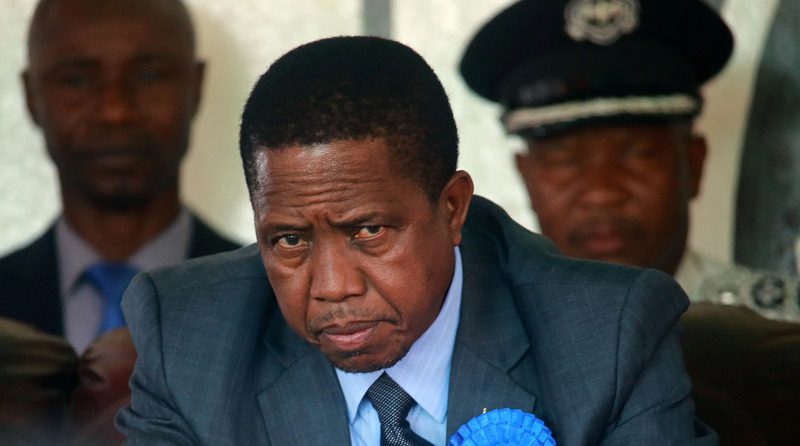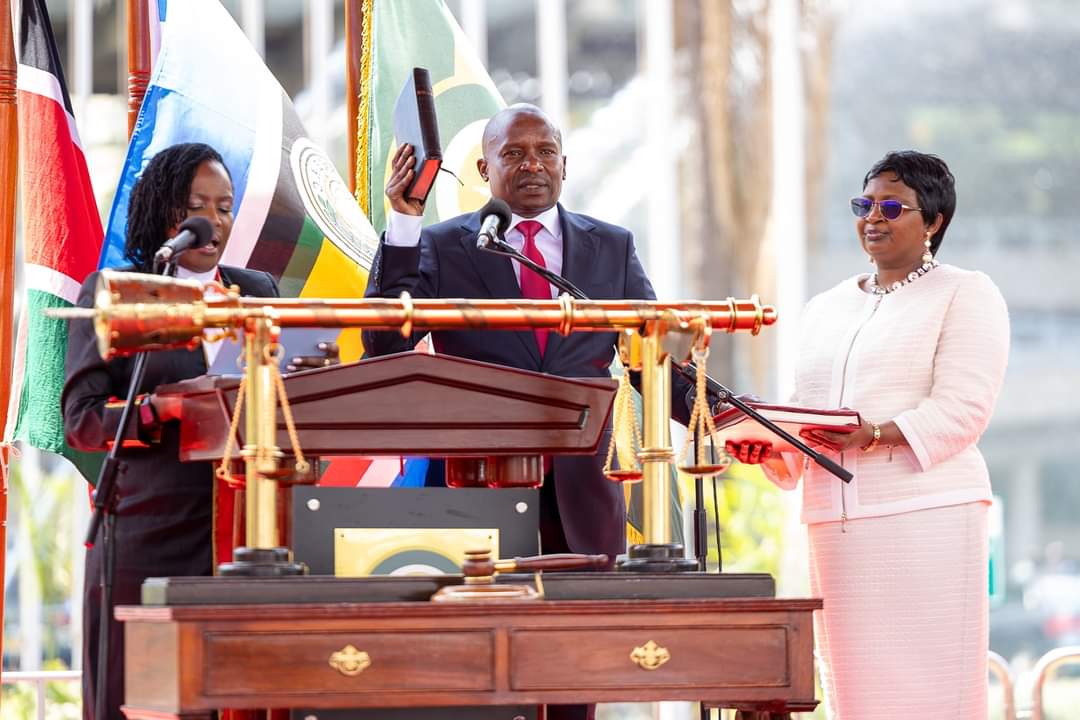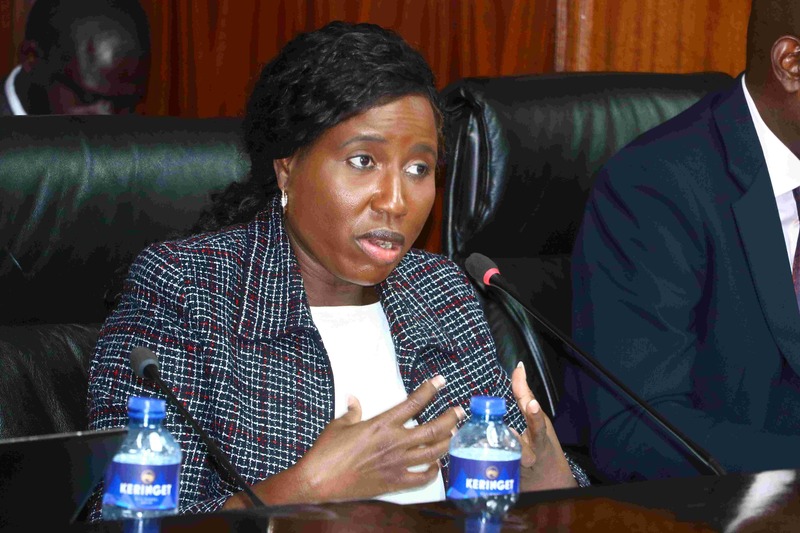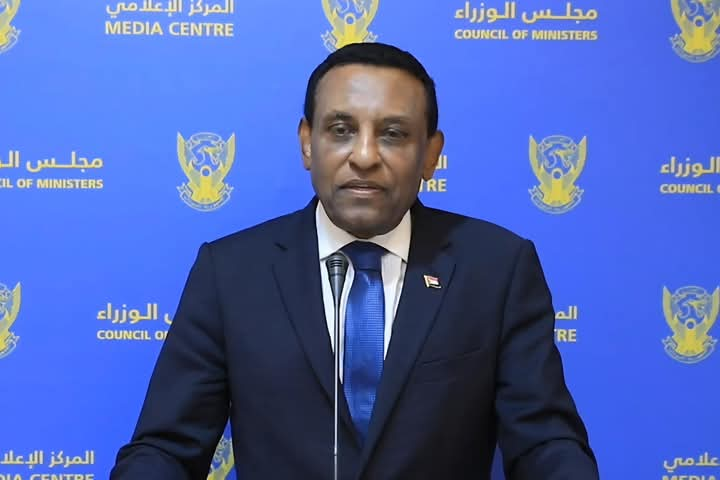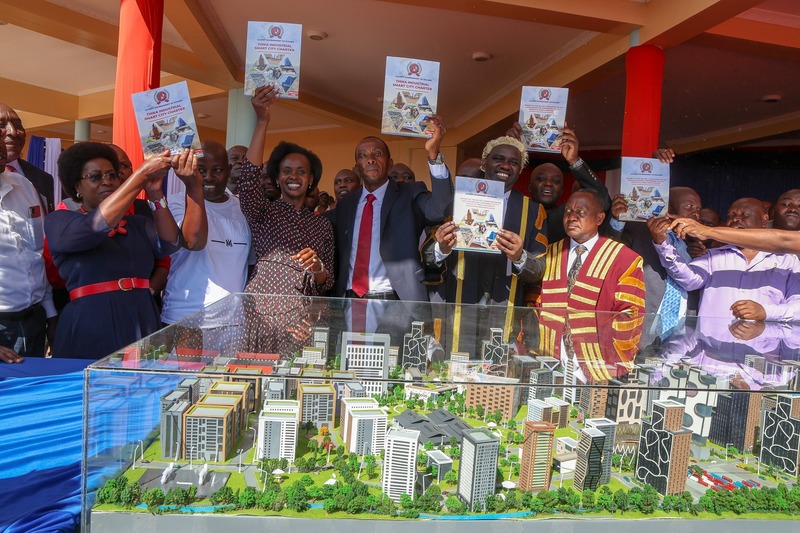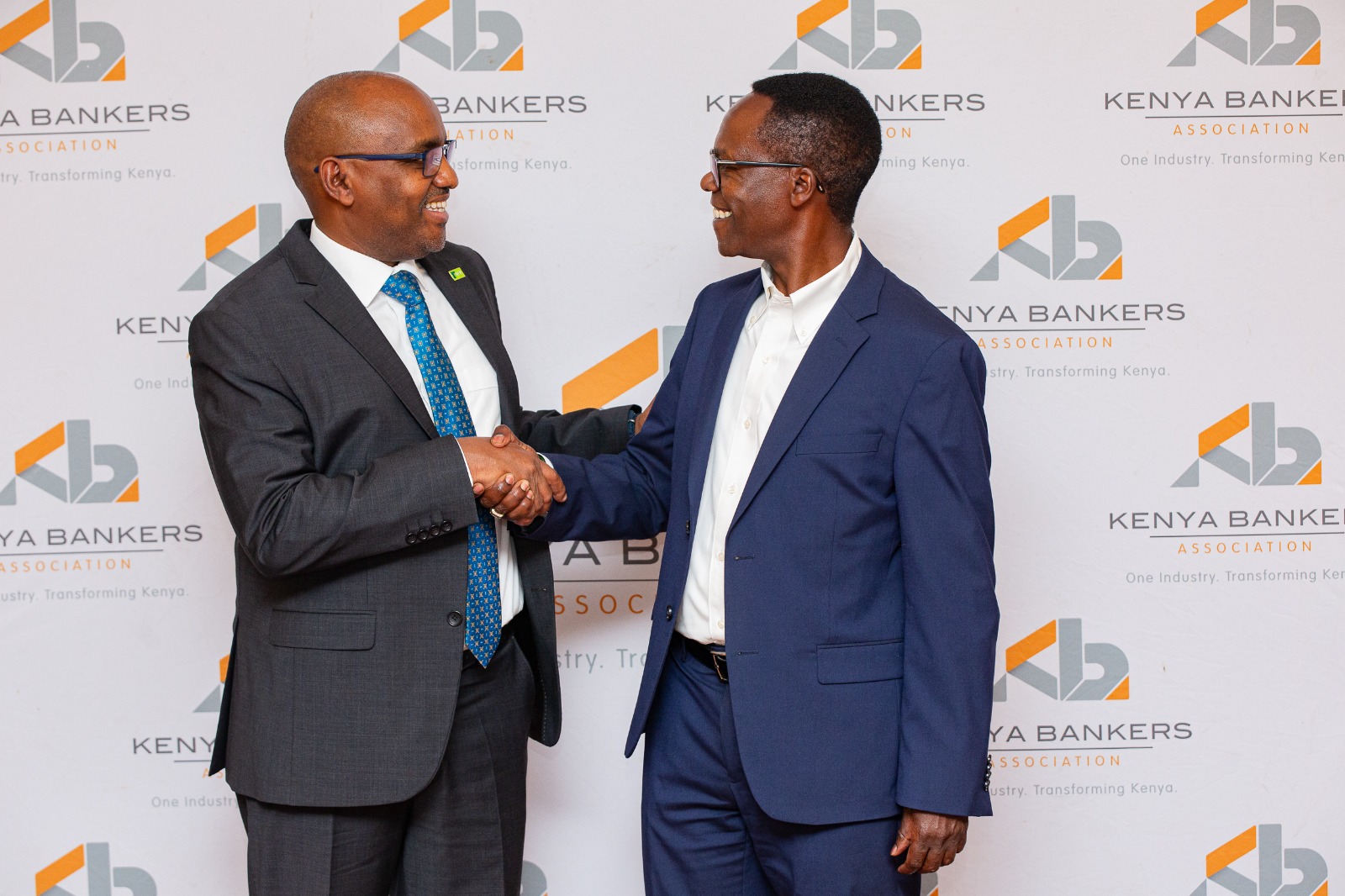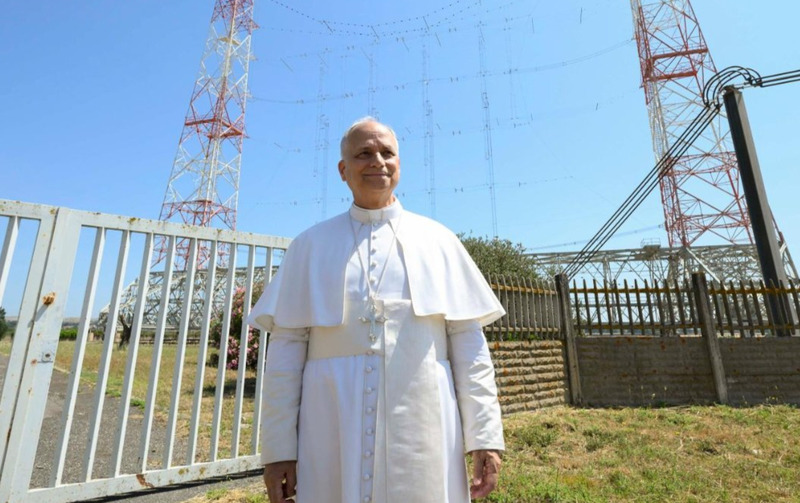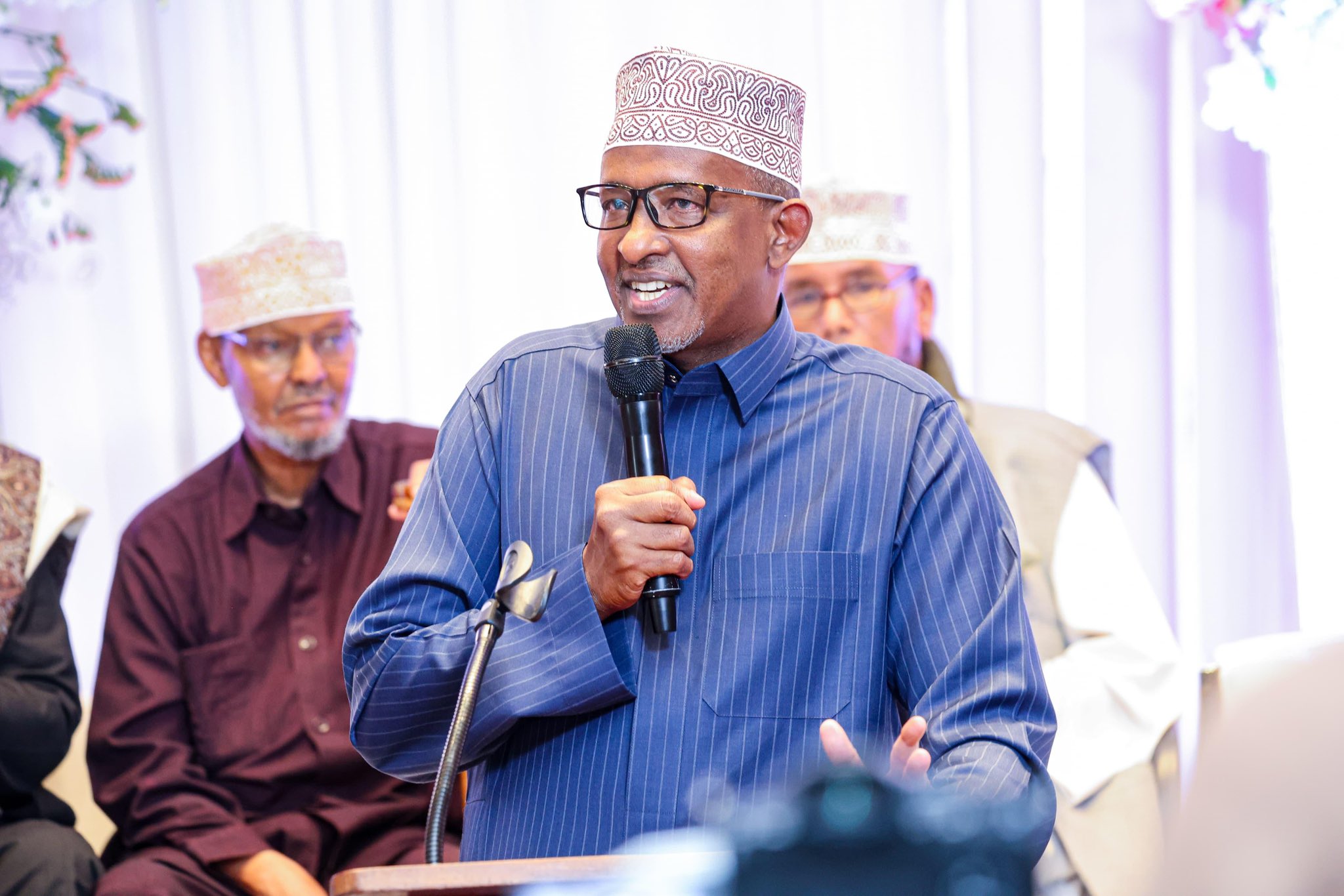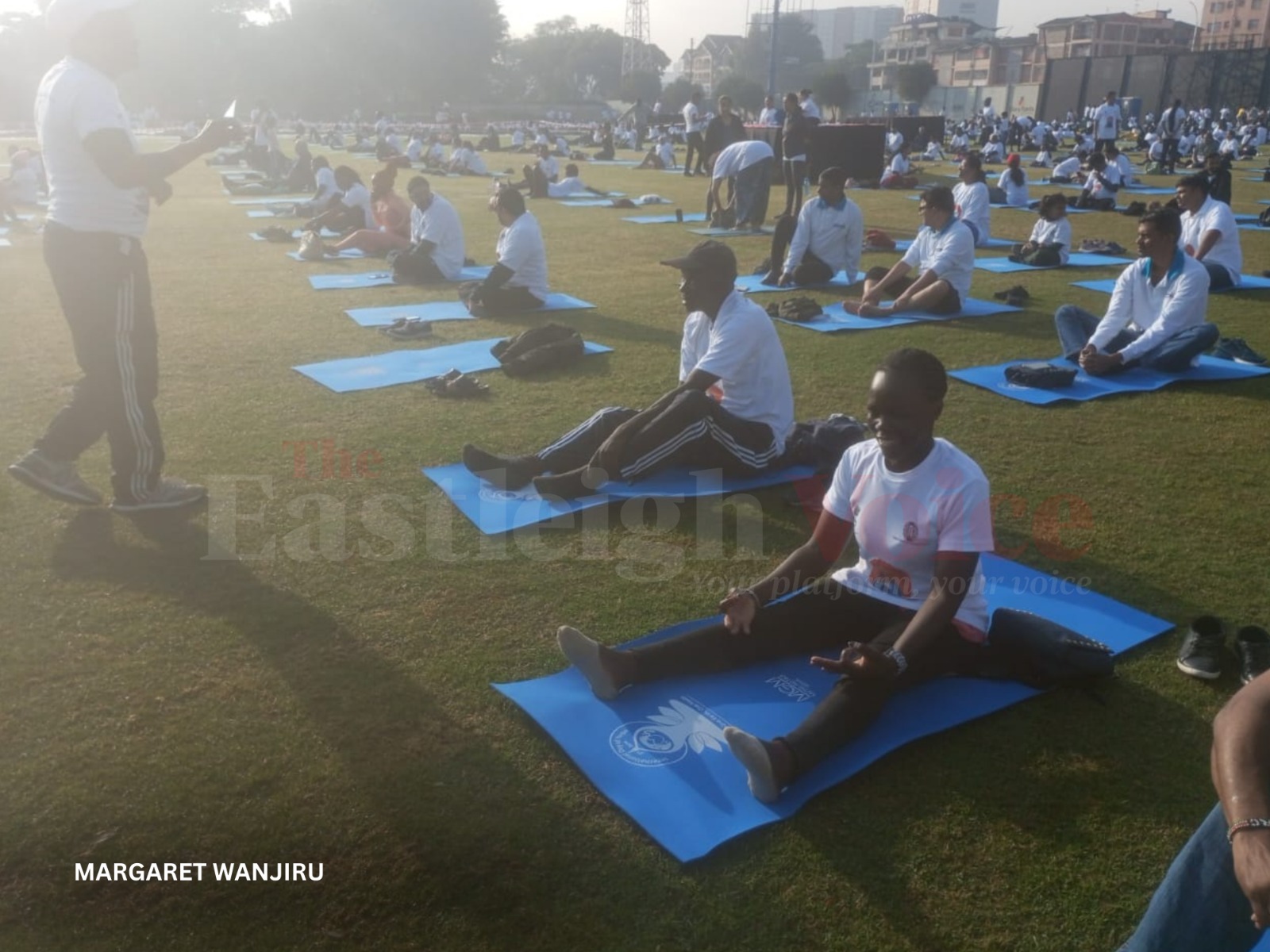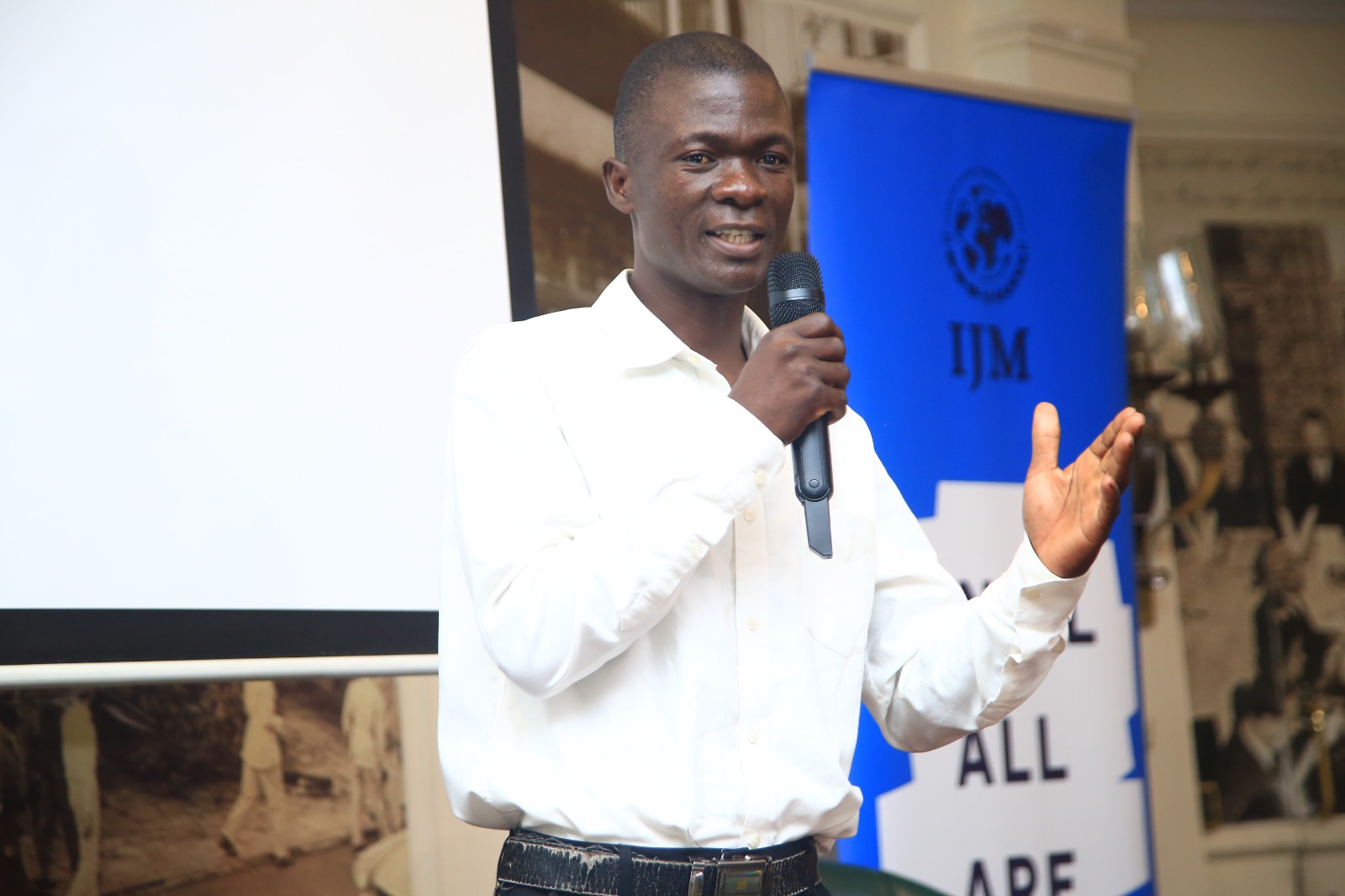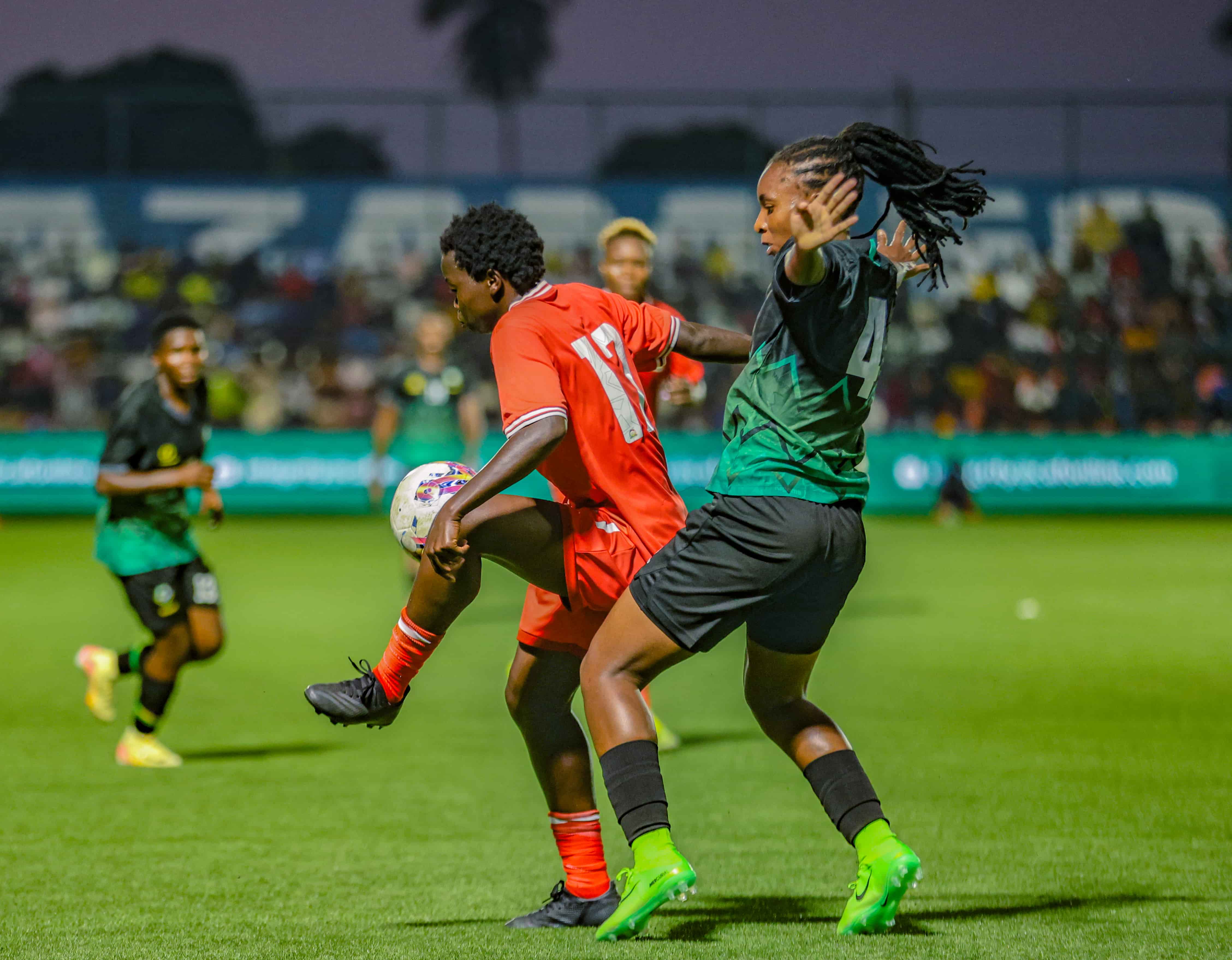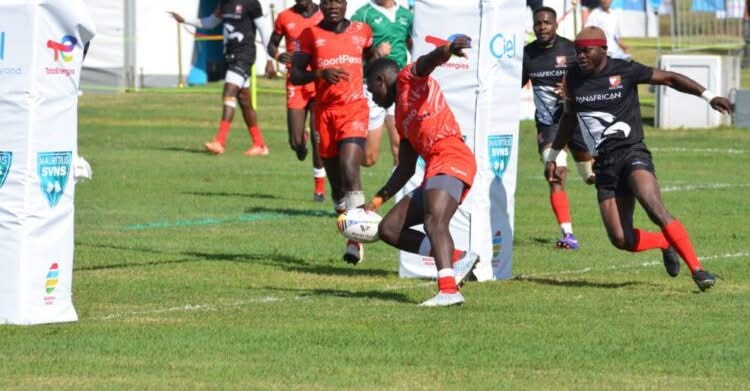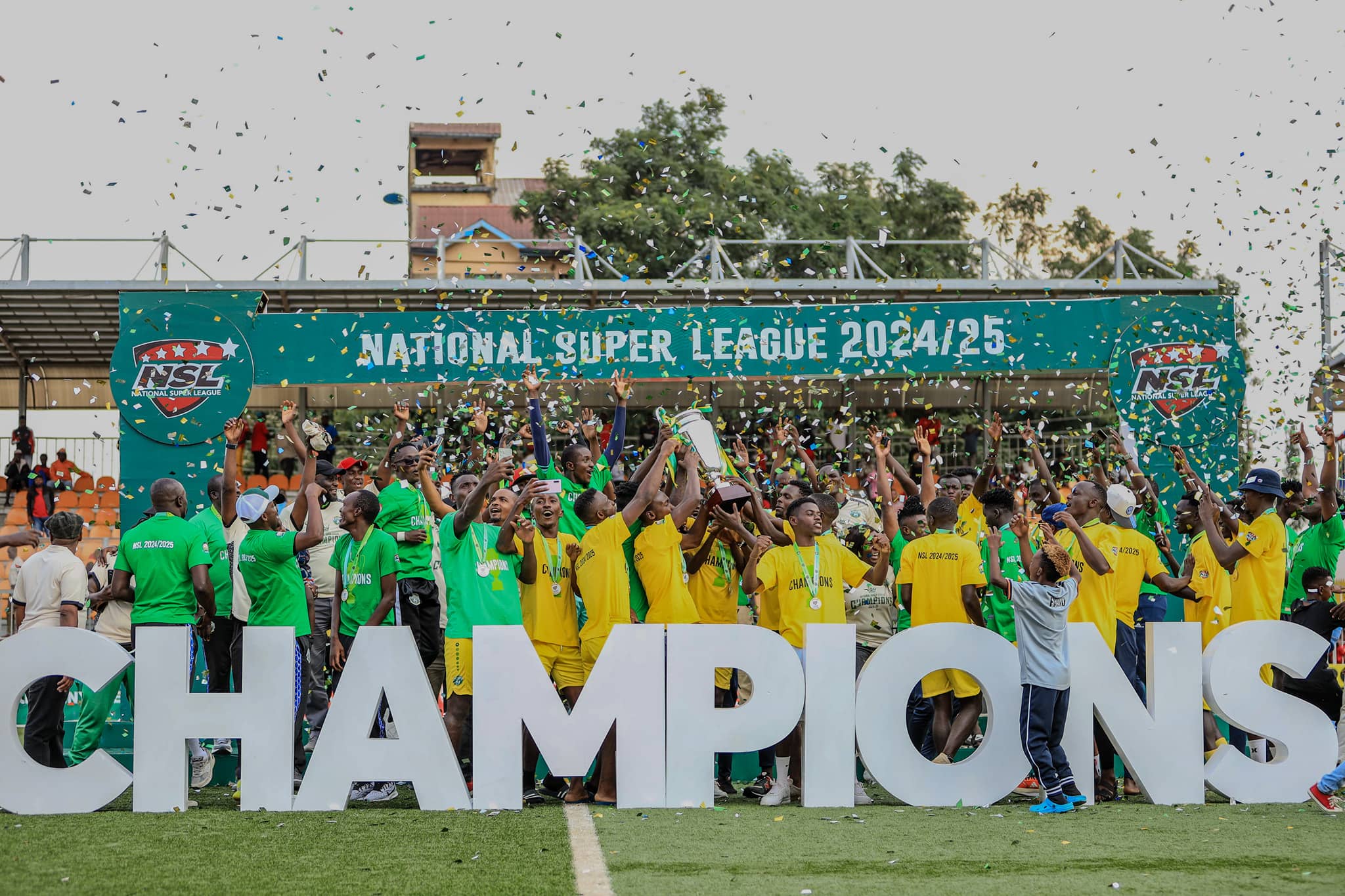Youth unemployment, widening economic inequalities should keep Kagame awake
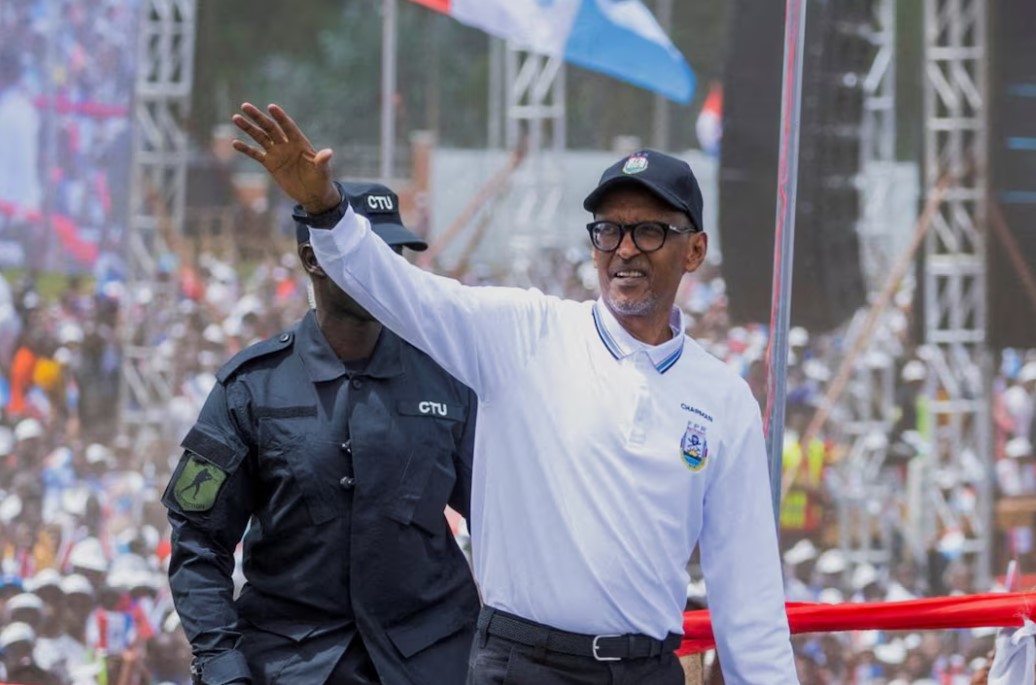
In the new term, his government will have to prioritise the creation of meaningful jobs for the bulging youth population and implement economic policies that will check the country’s widening economic inequalities.
When he was recently asked his views about the Gen Z-led protests in Kenya, Rwandan President Paul Kagame, fresh from securing a fourth term in office after a resounding victory, said: “If these young people are involved from the beginning and the culture grows where they participate in good politics of their country, then they don’t end up being just people demonstrating on the street, destroying this or that. They end up being part of a situation that prevents that from happening.”
Kagame, who the National Electoral Commission this week declared the winner of Rwanda's July 15 election after garnering 99.18 per cent of the votes (8,822,794 votes), said one way of stemming youth protests like is happening in Kenya is to progressively engage young people in the governance affairs of the country so that they are part of finding solutions to problems.
More To Read
- Rwandan capital Kigali introduces modern road cleaning technology
- Rwanda’s Foreign Affairs minister says exit from regional bloc was manipulated by DRC
- Rwanda quits Central African States over rights violations, political bias by DRC
- Congo government, M23 rebel delegations in Doha for talks, sources say
- Angola steps back from DRC peace talks after failed mediation efforts
- AU welcomes Doha talks on DRC crisis but reaffirms 'African solutions' mantra
Those views would not have come at the right time. As he starts his new five-year term, Kagame should remember that Rwanda is not entirely insulated from the youth disillusionment-induced protests sweeping across the region.
In the new term, his government will have to prioritise the creation of meaningful jobs for the bulging youth population and implement economic policies that will check the country’s widening economic inequalities.
The government created 1.1 million jobs in the last seven years, falling short of its National Strategy for Transformation job creation target of 1.4 million in seven years, where 200,000 jobs were to be created every year.
Rwanda’s economy grew by 8.6 per cent in 2019 and was expected to grow by over 10 per cent in 2020 had it not been for the Covid-19 pandemic. In 2024, the economy has grown by 8.2 per cent, higher than the earlier projection of 6.2 per cent, thanks to the good output of the industry and services sectors.
However, economists warn that if Rwanda doesn’t address its acute production deficits, the economy will not withstand the biting inflationary and currency pressures exerted by external factors.
“If we don’t boost our production, my prediction is that even if we invest in infrastructure and machinery, the Franc will continue to depreciate. Rwanda has to invest in human capacity development, and if we want to expand our GDP in the next five years, we need to heavily invest in agriculture and boost production, followed by manufacturing. This will lead to job creation,” said Teddy Kaberuka, a Kigali-based economist.
The captains of Rwanda’s economy will also need to work overtime to stop the country’s public debt from rising further. Although experts say the country’s public debt is still manageable compared to its regional peers, they argue that it is quickly nearing dangerous levels.
 Voters queue before casting their ballots at a polling centre during the presidential election in Kigali, Rwanda July 15, 2024. (Photo: REUTERS/Jean Bizimana)
Voters queue before casting their ballots at a polling centre during the presidential election in Kigali, Rwanda July 15, 2024. (Photo: REUTERS/Jean Bizimana)
Debt to GDP ratio stood at 73.5 per cent in 2023 and is expected to rise to 78 per cent in 2024 before decreasing to 77.2 per cent in 2025, 74.8 per cent in 2026 and 73.9 per cent in 2027, according to the Rwanda Ministry of Finance and Economic Planning.
Rwanda also has a lot to do on the diplomatic and foreign policy front, starting with mending broken diplomatic channels with neighbours like Burundi, which closed its borders with Rwanda early this year, accusing Kigali of backing the Red-Tabara rebels fighting the establishment in Gitega.
Although relations between Rwanda and Uganda are now on the mend, there is still work to be done for trade between the two countries to go back to normal.
In his new term, Kagame will also be expected to embark on salvaging the seemingly collapsed relations with the Democratic Republic of Congo (DRC), which soured a few years ago after DRC accused Kigali of backing M23 rebels seeking to oust the government in Kinshasa, accusations Rwanda denies.
For decades, DRC has been Rwanda’s most economically important neighbour, with annual trade of over $800 million (Sh106.4 billion). The normalisation of Rwanda’s relations with DRC and Burundi will also be beneficial to other regional countries, which access the two countries through Rwanda.
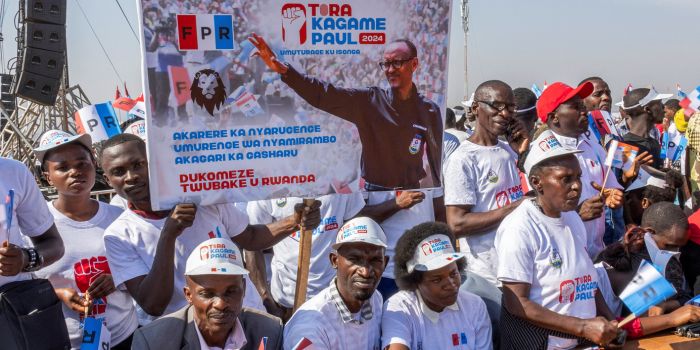 Supporters of Paul Kagame, Rwanda's incumbent President and presidential candidate for the Rwandan Patriotic Front (RPF), attend his campaign rally in the Gahanga area of Kicukiro district in Kigali, on July 13, 2024. (Photo: REUTERS/Jean Bizimana)
Supporters of Paul Kagame, Rwanda's incumbent President and presidential candidate for the Rwandan Patriotic Front (RPF), attend his campaign rally in the Gahanga area of Kicukiro district in Kigali, on July 13, 2024. (Photo: REUTERS/Jean Bizimana)
The resurgence of M23 rebel activities and souring relations between Rwanda and its two neighbours have greatly affected the flow of trade from Kenya, Uganda and Tanzania into the hinterland.
In Kagame's new term, Rwanda is also expected to continue its military diplomacy on the continent and consolidate the gains attained from sending troops to countries like Mozambique and the Central African Republic.
The other thing to expect in Kagame’s new term is a continuation of his astute deal-making, and Rwanda punching above its weight, which has enabled him to attract capital to Rwanda through several infrastructural projects.
In his next term, the construction of Bugesera International Airport and the selling of a stake in the national carrier, RwandAir to the Qataris, will be concluded.
Rwanda sold a 51 per cent stake in the airport, and a 49 per cent stake in RwandAir to Qatar Airways, moves seen as a win-win for a country trying to turn around its aviation sector and position it as a catalyst for its tourism and service sectors.
As he settles down for his fourth term, Kagame is well aware of the task ahead of him. This became very clear during a dinner organised to thank members of his RPF party.
“The election period has come to an end. What is left is the work that is ahead of us. The work ahead requires much more energy and effort than what we put into campaigns and elections,” he said.
Top Stories Today
